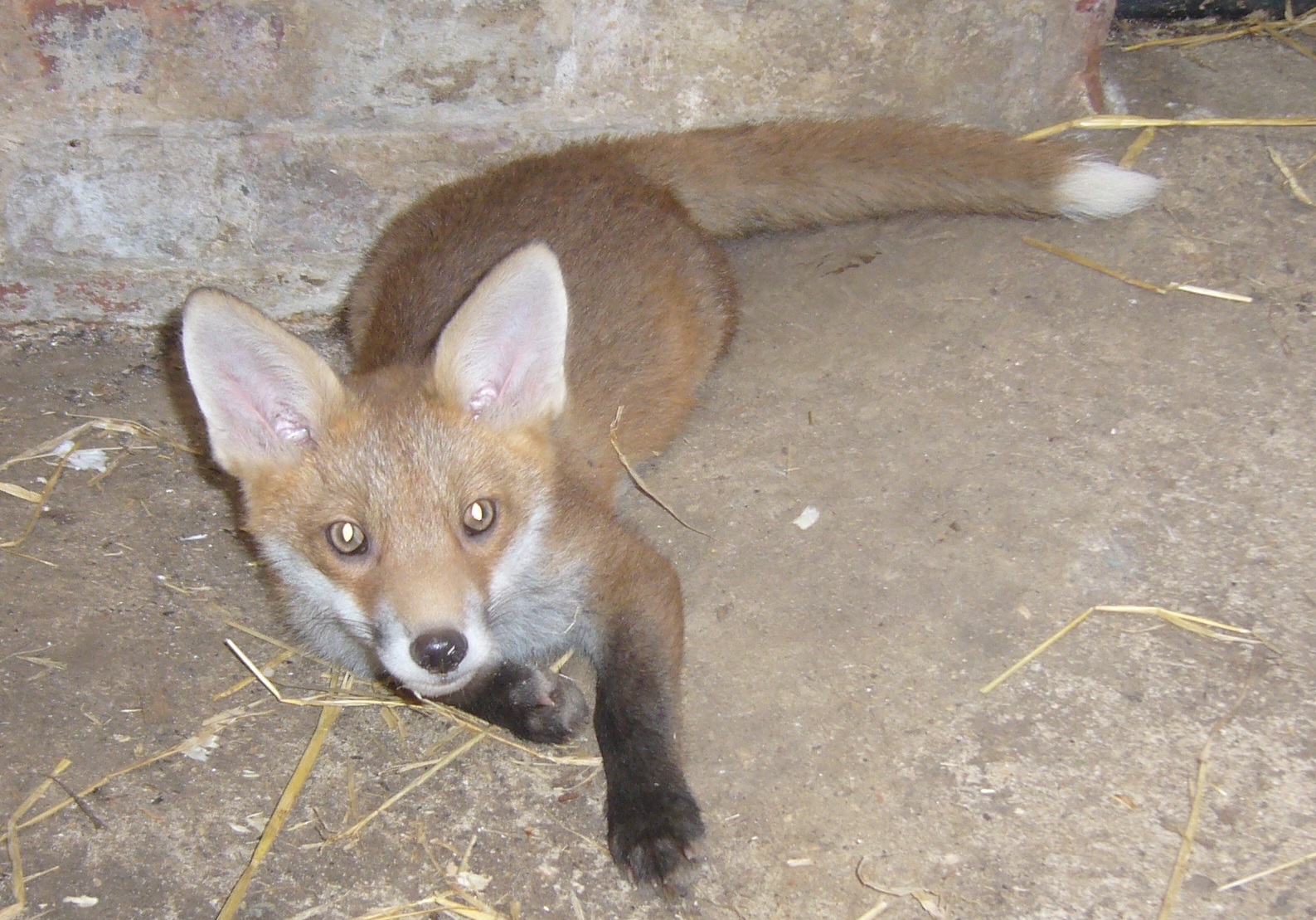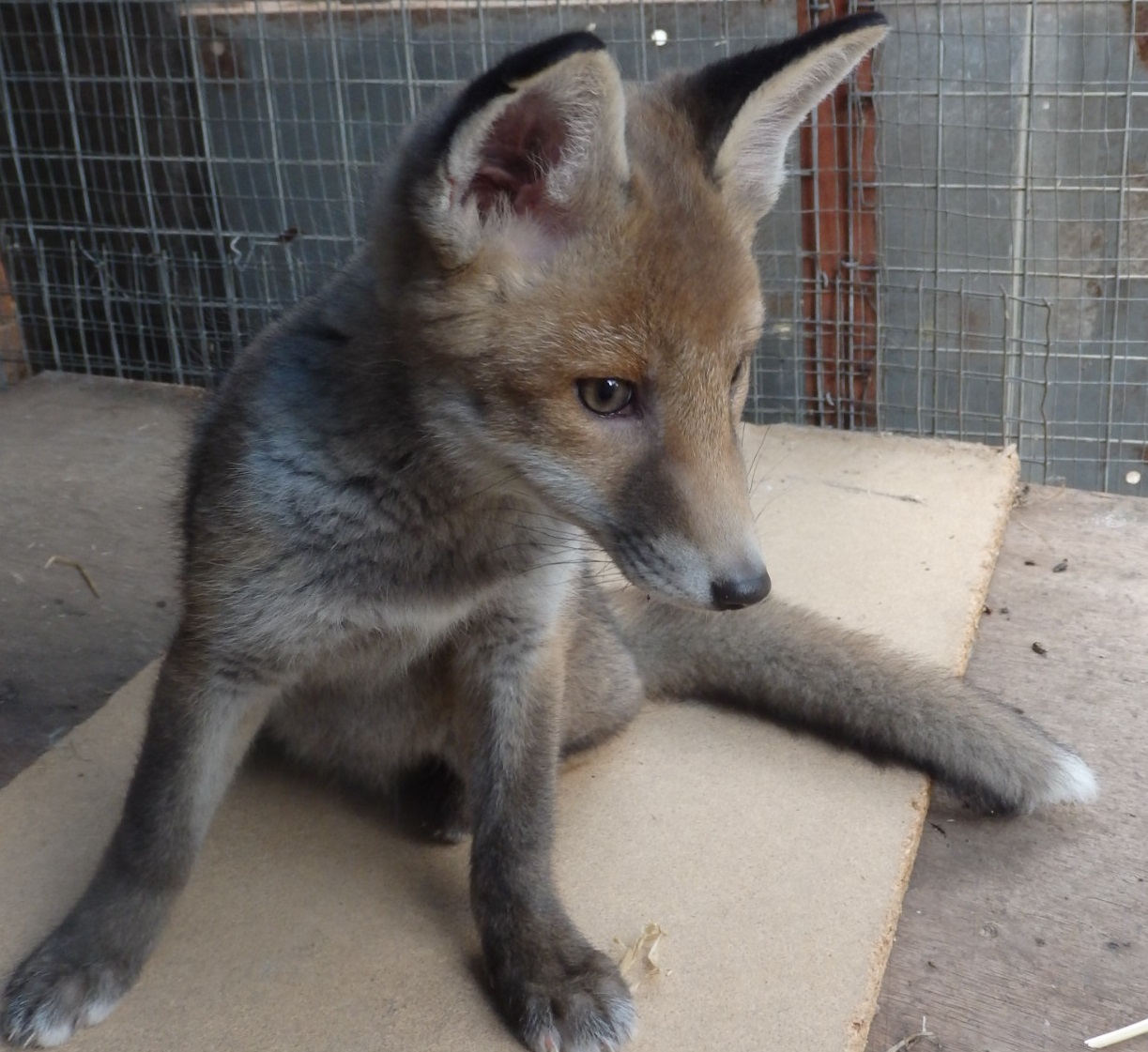Emergency care
If the cub you've found is a newborn, and has no visible injuries, your first step is to provide gentle supportive warmth. This can be done by either filling a hot water bottle, or plastic drinks bottle, with very hot water and then wrapping it in a towel.
Place the wrapped bottle into a cardboard box, or plastic storage container, and then place either another towel, fleece, or jumper over the heat source. To ensure the heated area isn't too hot, or not warm enough, place the back of your hand on it. You may need to adjust the water temperature in the bottle, or number of towels, until the area feels comfortably warm to the back of your hand. Once you have achieved the correct temperature place the fox cub in the warm box and cover the top with a towel, leaving a small area uncovered to allow for air.

Place the box in a quiet area of the house away from any pets or children. While the cub gently warms up, you will now need to contact your local wildlife rescue for further help and advice. However, if your newborn cub has visible injuries you will need to transport it immediately to your local veterinary practice, where the cub's injuries can be treated by a Vet.

If the rescued cub is older and, once again doesn't have any visible injuries, supportive warmth may not be necessary. Older cubs are more likely to bite, so ensure you're wearing thick gardening gloves before you handle the animal. If the cub feels cold, or is wet, supportive warmth will be needed. This warmth should be supplied as described above and, once again, the boxed cub placed in a quiet area away from any pets or children. So often people mistakenly think that a rescued wild animal will benefit from being cuddled and stroked, this couldn't be further from the truth! Wild creatures are fearful of people and, as a consequence, your closeness will only cause further unnecessary fear and stress to the animal.
The greatest gift of love and care you can give your orphaned fox cub is to hand it over to a wildlife rescue as soon as possible. The rescue will be able to provide the cub with the correct diet and housing, as well as ensuring your cub is reared with others of its own kind, thereby preventing imprinting. Unfortunately, it's becoming a very common occurrence in wildlife rehabilitation that members of the general public find an orphaned wild animal and don't take the baby to a wildlife rescue, but decide instead to 'have a go' at rearing the animal themselves, without the faintest idea what they're doing.
Additionally they search the Internet and find some cobbled-together nutritionally unsound diet, then, when the baby is at death's door, or totally imprinted, they decide they can't cope any more and contact a wildlife rescue. So PLEASE, if you find a fox cub DON'T 'have a go' yourselves, take your orphan to a wildlife rescue. The cub will stand a far better chance of survival, and will grow up as a true wild fox, rather than some sorry imprinted misfit that can never be released back into the wild.